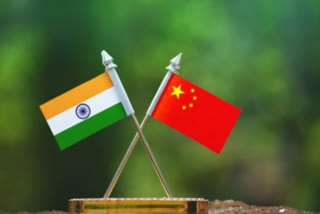New Delhi:Amid the deadly Covid 19 pandemic, when the Galwan Valley clash between India and China took place exactly a year ago resulting in the death of 20 Indian soldiers, many pundits had predicted that the bloody episode would lead to a complete breakdown in economic relations between the two countries.
Within days of the clash, India, concerned over privacy and security threats, banned 59 Chinese apps including the popular TikTok, WeChat, UC Browser and Weibo among others resulting in huge losses for the companies. India also decided to bar Chinese tech giants-- Huawei and ZTE to participate in the country's 5G rollout.
"The apps were banned because of security threats but beyond that India has not taken any step which is not practical. It is true that New Delhi will remain watchful..that cannot be held against us," an insider told India Narrative. External affairs minister S. Jaishankar said that border tensions cannot be taken in isolation while continuing to co-operate with China in other areas.
Read:Indian army pays tributes to Galwan soldiers
Prime Minister Narendra Modi gave a clarion call for making India Atmanirbhar and boost Make In India. Though Modi said that India must be the world's factory and even manufacture for domestic market, the person pointed out that the government maintained that the country needed to be integrated in the global supply chain management.
"India has been importing raw materials and other critical goods from China, that has continued but again we must understand that boosting domestic manufacturing is beneficial to the country and is the need of the hour," the person said.
But did the Galwan Valley incident bring India-China economic ties to a halt? No, Since Galwan, India has shifted gears in terms of economic diplomacy with China.
On one hand India has strongly defended certain areas of economic engagements but on the other, has continued to deal with China. In a major decision, India also pulled out from the mega trade deal Regional Comprehensive Economic Partnership (RCEP), driven by China primarily to protect its own manufacturing industry.
